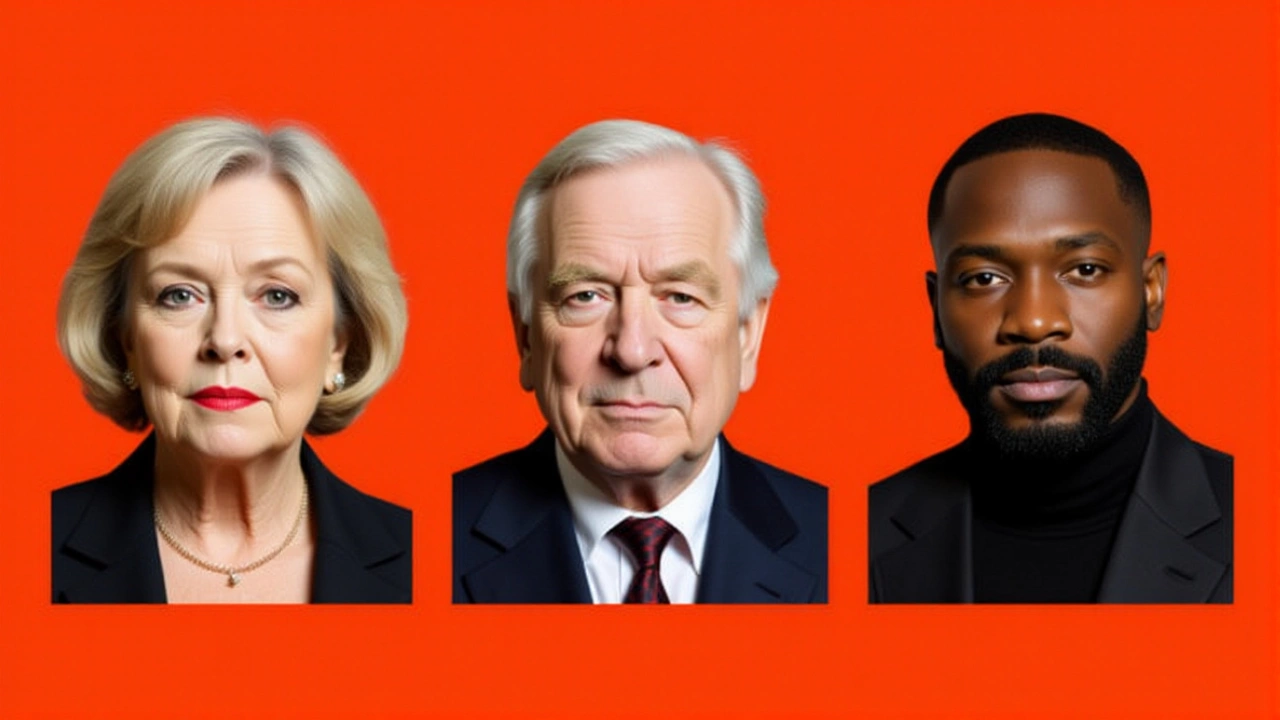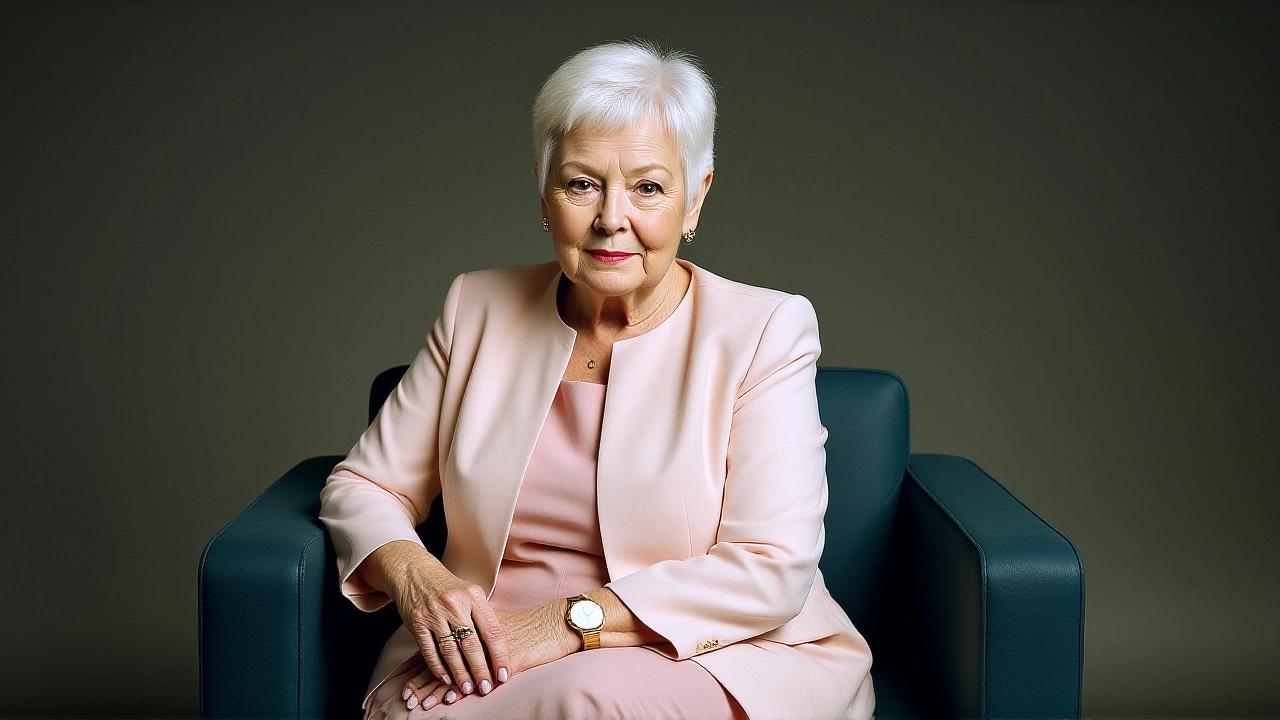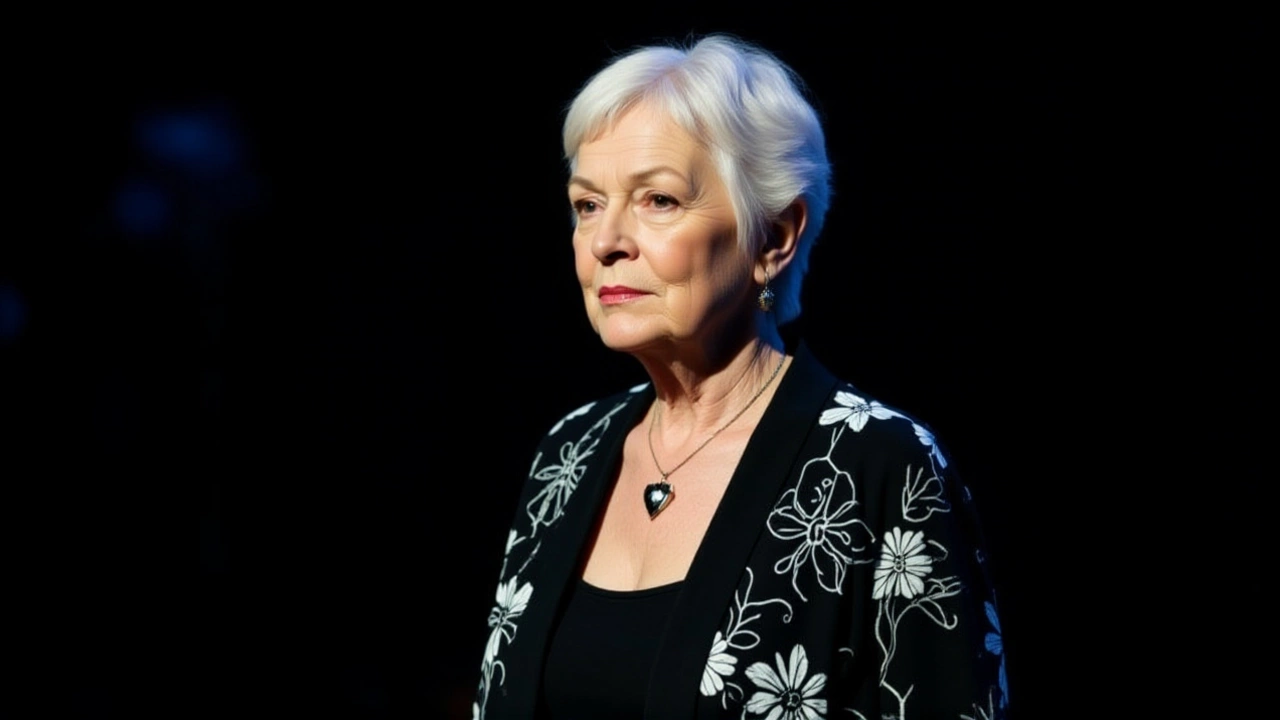When Judi Dench first appeared as MI6’s cold, commanding chief in GoldenEye London in 1995, audiences weren’t just meeting a new boss — they were meeting a revolution. For the first time in the 33-year history of the Eon Productions James Bond franchise, the legendary head of British intelligence wasn’t a gruff, pipe-smoking general from World War II. She was a woman. Sharp. Unflinching. And utterly in charge. Dench didn’t just play M — she redefined her, turning a background figure into the moral compass of the entire series.
The Woman Who Changed M Forever
Before Dench, M was a name on a door, a voice on a speakerphone, a symbol of bureaucratic authority. She turned him — yes, he was always a him — into a living, breathing force. Critics called her portrayal “fierceness wrapped in tweed.” And it stuck. From GoldenEye to Skyfall, Dench’s M didn’t just give orders; she questioned them. She challenged Bond’s recklessness, not with lectures, but with silence — a raised eyebrow, a slow sip of tea, the kind of disapproval that cut deeper than any reprimand.
She worked with two generations of 007s: Pierce Brosnan in four films — GoldenEye, Tomorrow Never Dies, The World Is Not Enough, and Die Another Day — and Daniel Craig in three: Casino Royale, Quantum of Solace, and Skyfall. Plus a final, haunting video cameo in Spectre in 2015. That’s twenty years of watching a character evolve — from skeptical superior to reluctant mentor to, finally, a mother figure in uniform.
“Any Thug Can Kill. I Need You to Take Your Ego Out of the Equation.”
That line from Casino Royale — delivered in a sun-drenched Bahamian villa as she watches Bond squirm under a tracking device — became the thesis statement of her M. This wasn’t a bureaucrat. This was a strategist who understood that survival in espionage wasn’t about bullets, but about discipline. She didn’t trust Bond at first. Not after his botched mission in Casino Royale that cost Vesper Lynd her life. But she saw something else: raw talent. Ruthless precision. And a man who needed to be tempered, not tamed.
She stood by him when politicians screamed for his head. She defended him against the press. She even let him break into her London penthouse — a moment where his whispered question — “What’s your real name?” — almost cracked her armor. It didn’t. But it revealed something: M wasn’t just a title. She was a person. And Dench made sure we knew it.
Nearly Killed by Her Own
In Quantum of Solace, M’s authority was tested in the most personal way. During an interrogation of Mr. White, a shadowy figure tied to the Quantum organization, a rogue MI6 agent — Craig Mitchell — opened fire. Dench’s M didn’t scream. She didn’t flinch. She rolled, ducked, and kept her voice steady as bullets tore through the room. The scene wasn’t just action — it was symbolism. The system she ran was corruptible. Her own people could turn. And yet, she didn’t retreat. She doubled down.
She warned Craig’s Bond against revenge. “It’s not justice,” she told him. “It’s a cycle.” That line wasn’t just for Bond. It was for the audience. Dench’s M was the voice of restraint in a world that glorified violence. And she paid for it — not with her life, but with her dignity. In Skyfall, she’s called before Parliament. Accused of being outdated. Of being too emotional. Of clinging to a past that no longer fits. She doesn’t beg. She doesn’t cry. She just says, “I’ve spent my life protecting this country. And now you want to retire me?”

Her Final Scene Wasn’t a Scene — It Was a Farewell
According to Slash Film in 2022, Dench’s death scene in Skyfall was filmed in sequence. That means she didn’t just act out M’s final moments — she lived them. The camera lingers on her face as she lies wounded, watching Bond walk away. No grand speech. No last-minute heroics. Just quiet resignation. And then, silence.
“I didn’t want to leave,” Dench told The Observer during the film’s press tour. “But I knew it had to end. She’d done everything she could.”
That final moment — her death — wasn’t just narrative closure. It was a statement. A woman who had led MI6 through two decades of change, who had outlasted two Bonds, who had held the line against corruption, incompetence, and her own aging — was finally allowed to rest. And the franchise didn’t replace her. It honored her.
Reality Finally Caught Up to the Movies
Here’s the twist no one saw coming: in June 2025, the real MI6 appointed its first female chief — a historic moment that echoed what Dench had done on screen thirty years earlier. As WWUF reported, “The cinematic milestone had already happened. Judi Dench had been the first.”
It’s rare in pop culture when fiction leads reality. Even rarer when it’s done with such quiet, unshakeable authority. Dench didn’t just play a woman in charge. She made us believe a woman could be in charge — and that we’d be better for it.

Why M Still Matters
She didn’t carry a gun. She didn’t drive a Lotus. But she had more power than any of them. She held the keys to the missions. The budgets. The lives. And she never used it lightly. Dench’s M was the antidote to the myth of the lone wolf spy. She was the system — flawed, human, and fiercely protective of those who served under her.
When she told Bond, “You’re not the only one who’s lost someone,” she wasn’t just speaking to him. She was speaking to every agent, every analyst, every clerk who’d worked in the shadows — and never been seen.
Frequently Asked Questions
How did Judi Dench’s M differ from previous portrayals of the character?
Previous Ms were male, faceless, and mostly off-screen voices. Dench’s M was visible, emotionally complex, and morally grounded. She questioned orders, defended agents, and showed vulnerability without losing authority. Her M wasn’t just a boss — she was a leader who carried the weight of every mission, and every death, on her shoulders.
Why was M’s death in Skyfall so significant?
It wasn’t just a plot device — it was a symbolic end to an era. Dench’s M was the only female head of MI6 in the franchise’s history, and her death marked the passing of a new standard for leadership. The film didn’t replace her with another M immediately; it let her absence echo, showing how irreplaceable she was. Her final line — “I’m not sure I’m the right person for this job anymore” — was a quiet, devastating admission of mortality.
Did Judi Dench have input into how M was written?
Yes. Dench famously pushed back on early scripts that tried to soften M into a maternal figure. She insisted the character remain sharp, intimidating, and professionally distant — even when emotionally affected. Her input helped shape M’s dry wit, her clipped delivery, and her refusal to be sentimental. That’s why the character felt so authentic.
How did Dench’s M influence real-world intelligence agencies?
While MI6 never publicly cited Bond films as influence, the timing is telling. Dench’s portrayal from 1995–2015 coincided with increasing female representation in British intelligence. By 2025, MI6 appointed its first female chief — a milestone that mirrored Dench’s on-screen legacy. Her M helped normalize the idea of a woman at the top, making the real-world appointment feel less like a breakthrough and more like a natural evolution.
Why did Dench return for a cameo in Spectre?
It wasn’t a return — it was a final whisper. The pre-recorded video message was a deliberate nod to her legacy. She wasn’t physically present because M was gone. But her voice, her authority, still lingered — guiding the next generation. It was a poetic farewell, not a resurrection. Dench herself called it “a ghost in the machine,” and it was perfect.
What was Dench’s favorite part of playing M?
She admitted in interviews that she loved being “imperiously bossy.” But she also cherished the quiet moments — the look she exchanged with Craig after a mission, the way she’d pause before signing a death warrant. “It’s the stillness,” she said. “The silence between the orders. That’s where the real power lives.”
